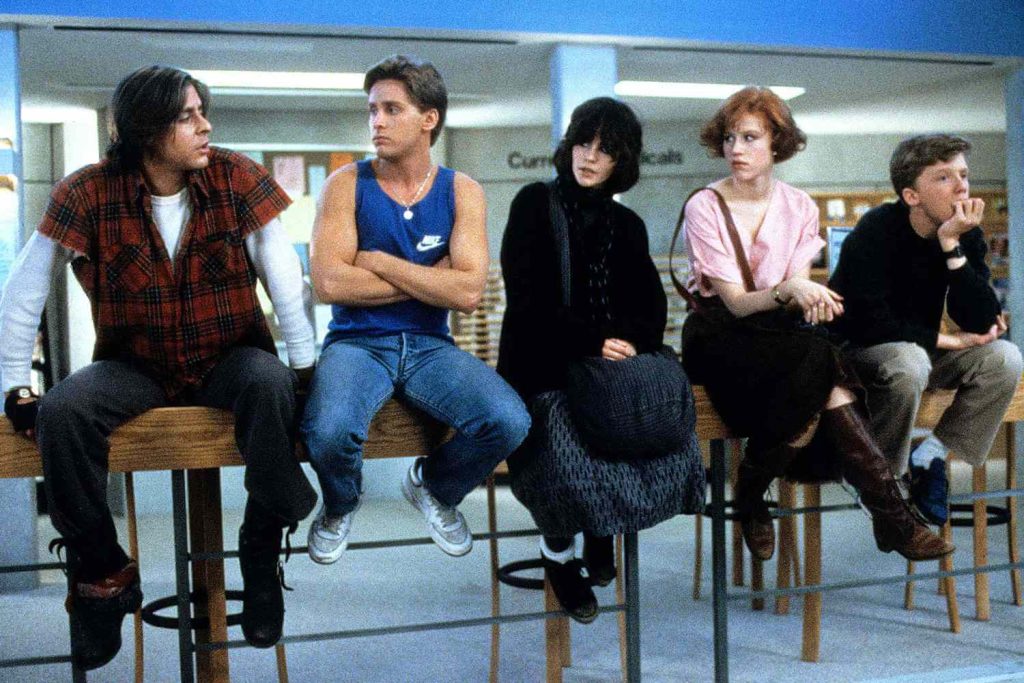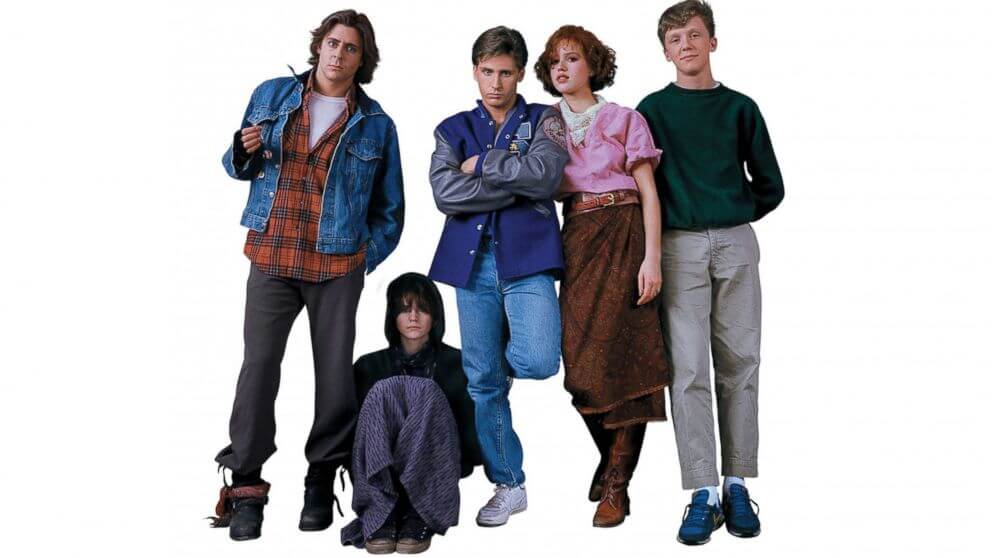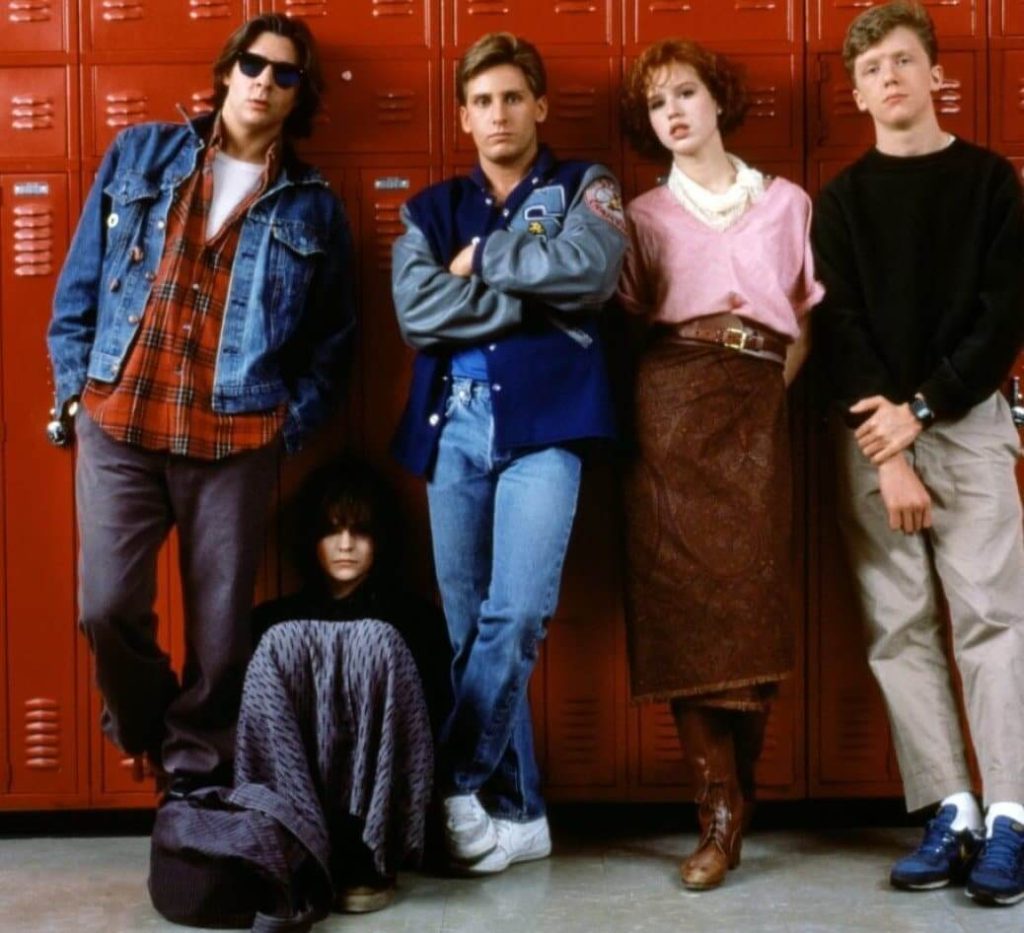World News
Molly Ringwald Discusses The Breakfast Club’s Legacy and Its Contemporary Relevance
Introduction: A Film of Its Time
Molly Ringwald, an iconic star of the 1985 classic The Breakfast Club, has always had complex feelings about the film’s legacy. As the movie marks its 40th anniversary, Ringwald reflects on the cultural significance of the film and how it resonates with audiences today. During a recent panel at the C2E2 convention, she openly discussed the film’s relevance in today’s world, admitting that while the movie remains impactful, it doesn’t represent the diverse and inclusive world we live in today. Ringwald emphasized that the film, which portrays the story of five high school students from different social groups bonding during detention, is “very white” and lacks representation in terms of ethnic diversity and gender issues. Her comments come at a time when the industry is pushing for more inclusive and representative storytelling, raising important questions about how films from the past stand up to contemporary standards.

The Breakfast Club’s Impact: A Snapshot of 80s High School Life
The Breakfast Club, directed by John Hughes, captured the essence of high school life in the 1980s, making it one of the most enduring teen films in cinema history. The film showcased five students — the popular girl, the jock, the rebel, the nerd, and the outcast — as they spend a Saturday in detention. Despite their differences, they form unlikely bonds, revealing their vulnerabilities and struggles. At its core, The Breakfast Club is about bridging gaps between different social groups and the shared experience of adolescence. However, Ringwald acknowledged that while the movie still resonates emotionally with fans, it no longer fully encapsulates the realities faced by today’s youth, particularly in terms of race, gender, and social issues. The film’s lack of representation of these facets of society is a point that Ringwald highlighted as a reason why she believes The Breakfast Club would not have the same impact if it were made today.
Representation Matters: The Lack of Diversity in The Breakfast Club
One of Ringwald’s central critiques of The Breakfast Club is its homogeneity. The movie, as she pointed out, is “very white,” with no prominent characters from different ethnic backgrounds. This absence of diversity is a stark contrast to today’s increasingly multicultural and diverse society. Ringwald pointed out that contemporary teen movies must reflect the complexities of race, gender, and identity. She mentioned that she would like to see films that are inspired by The Breakfast Club but updated to include a broader range of experiences and backgrounds. In the 1980s, such representation was limited, but the world of filmmaking has evolved, and now there is a push for more inclusive narratives that reflect a wider spectrum of voices. Ringwald’s call for a modern take on The Breakfast Club that reflects today’s world underscores the importance of evolving with the times and ensuring that stories are more inclusive and representative.

The Changing Landscape of Film: Gender and Consent in The Breakfast Club
Molly Ringwald’s critique of The Breakfast Club extends beyond the lack of racial diversity to include issues of gender and consent. In a 2024 essay, Ringwald noted that certain scenes in the film, particularly the behavior of Judd Nelson’s character, John Bender, toward her character Claire Standish, have not aged well. She pointed out that Bender’s actions toward Claire border on sexual harassment, a dynamic that in today’s world would be rightly called out. This acknowledgment has sparked discussions about the portrayal of relationships and gender dynamics in films from the 1980s, particularly in light of the #MeToo movement. Ringwald expressed relief that we can now reflect on these issues with a more critical eye, understanding that things truly have changed for the better in terms of how we address consent, harassment, and toxic masculinity in popular culture. Her comments reflect a broader conversation in the industry about how films must be viewed in the context of their time while also holding them accountable for problematic representations.
Looking Forward: Inspired by the Past, But Moving Forward
While Ringwald does not advocate for remaking The Breakfast Club, she believes that modern filmmakers can draw inspiration from its themes and structure while updating the story to reflect today’s social and cultural realities. Films like The Breakfast Club may have been groundbreaking in their time for their exploration of high school cliques, personal struggles, and emotional vulnerability. However, Ringwald argues that it is important for contemporary films to go beyond the stereotypes and address the diverse experiences of today’s youth, particularly as we continue to evolve in terms of race, gender, and sexuality. Her desire to see films that take the spirit of The Breakfast Club but present it in a more nuanced and diverse context speaks to the ongoing challenge in Hollywood to push for more inclusive, equitable, and thought-provoking narratives.
Conclusion: A Legacy of Reflection and Growth
Molly Ringwald’s reflections on The Breakfast Club 40 years later showcase both the timelessness of the film and the need for change. While the movie remains a cultural touchstone, Ringwald’s thoughtful critique of its lack of diversity and its outdated portrayals of gender dynamics highlights the ongoing conversation about representation in film. As society continues to make strides in terms of inclusivity, the film industry must evolve to reflect these changes, ensuring that the stories we tell resonate with a wider audience and reflect the diverse world in which we live. In the end, Ringwald’s comments serve as both a celebration of The Breakfast Club‘s enduring impact and a call for progress in how we depict the complexities of youth, identity, and culture on screen.
From thedragonfashion


